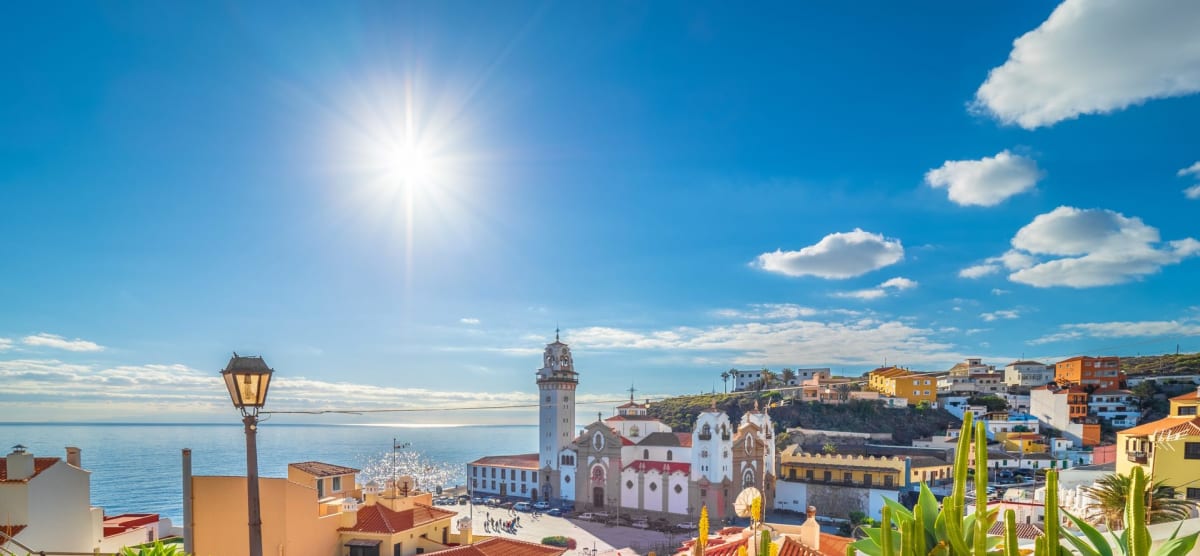Do I need a visa for Spain as a non-EU citizen?
British people moving to Spain since Brexit are now classed as ‘third-country nationals’ just like the many Americans and other non-EU nationals who make this wonderful country their long-term home.
So if you want to stay in Spain long term, for more than 90 days in every 180, you will need a visa. There are several visa options, depending on your personal situation. These visas will not only give you freedom to stay in Spain long term but will also grant you free movement throughout the whole Schengen Zone.
In this article, we will go into each Spanish visa in detail.
The 90/180-day rule
The first thing to understand is how long you can spend in Spain without a visa.
Non-EU citizens, such as the British, cannot stay in Spain, or the Schengen Zone as whole, for more than 90 days in a rolling 180-day period without a visa. This is known as the ’90/180-day rule’.
Note that the 180 days is ‘rolling’, meaning it is a moving block of time that counts backwards from when you enter the Schengen Zone. So, if you decide to stop off in France on the way down to Spain, your days in France will count towards your total 90 days.
The easiest way to keep track of your days is to count backwards 180 days from your arrival date and tally how many days in this period you have been in the Schengen Zone. If you haven’t spent more than 90 days in the Schengen Zone in the last 180 days, you will not need a visa to spend time in Spain.
You can use your 90 days in one long chunk or break them up into shorter stays. Either way, it is vital to follow the 90/180-day rule. The penalties for overstaying can be very severe, from a monetary fine to potential expulsion from Spain for as long as five years!
It can be difficult to understand, so if you want to be completely sure you are complying with the rules, there is a useful calculator to help you keep track of your days. You can find it a Schengen Area calculator here.
Spanish visas for non-EU citizens
If you decide you want to spend more time in Spain than the 90/180-day rule allows, then you will need to apply for a visa. Here are your visa options after Brexit…
Non-lucrative visa
The non-lucrative visa is the most popular residence visa option for non-EU citizens, particularly retirees. It is a long stay visa that allows you to reside in Spain but does not give you the right to work for a Spanish company.
It is a great option for those who have a reliable and steady income source, such as a pension, investment or salary from outside Spain (such as from a UK company if you work remotely). You must apply for this visa before you arrive in Spain. You can do this at the Spanish consulate in London, Manchester or Edinburgh.
Applications generally take between 30-90 days to be approved, so take this into consideration when planning your move to Spain. You will also have to pay a non-refundable fee of around €550.
The non-lucrative visa is valid for one year, after which you can renew it for another two years. This can be done in Spain. After your two-year renewal is up, you can renew it once again for another two years. After five years, you can apply for a long-term residence permit, and after 10 years, you can apply for Spanish citizenship.
What are the requirements for the non-lucrative visa?
- You must be able to prove you can financially support yourself. The Spanish government requires an individual to have an income of €27,155 per year. A couple would need a total of €33,893. If you have children, you will need an additional €6,778 per minor. Therefore, a family of four would need an annual income of €47,451.
- You must have private medical insurance before you apply for the visa.
- You must spend a minimum of 183 days a year in Spain for the visa to be valid and to be eligible for renewal. Note that this will make you a Spanish tax resident.
What documents do you need when applying for the non-lucrative visa?
- Passport and passport photographs
- Birth certificate
- Proof of clean criminal record
- Proof of private medical policy and medical certificate
- Proof of income (bank statements)
Work visa
If you want to work for a Spanish company when you move to Spain, you will need a Spanish work visa. These are more difficult to obtain than the non-lucrative visa but are not impossible!
To qualify for a work visa in Spain, your job role must fall into Spain’s ‘highly-skilled’ category, and you will need a job offer from a Spanish company first. Your Spanish employer will make the initial application on your behalf and must be able to prove that they could not find a suitable candidate for the position in the EU.
Spanish work permits can take up to eight months to process, so you should take this into consideration when planning your move to Spain.
Golden visa
The Spanish golden visa is an attractive and flexible visa option for affluent non-EU citizens. It allows those who make a substantial investment to both live and work in Spain. It also allows the holder’s family to live, work and study in Spain.
The application process for the golden visa is generally quicker than the non-lucrative visa, taking around 20 days to complete. The initial visa lasts for two years but can then be renewed for a further two years. After five years, you can apply for a long-term residence permit, and after 10 years, you can apply for Spanish citizenship.
What are the requirements for the golden visa?
- You must make a substantial investment in Spain. The most popular way to invest is by purchasing a property, or properties, worth a total of least €500,000 without using a mortgage or loan (see below for the full list of investment options).
- You must spend at least one day in Spain.
- You must be able to prove you can financially support yourself and any accompanying family members.









